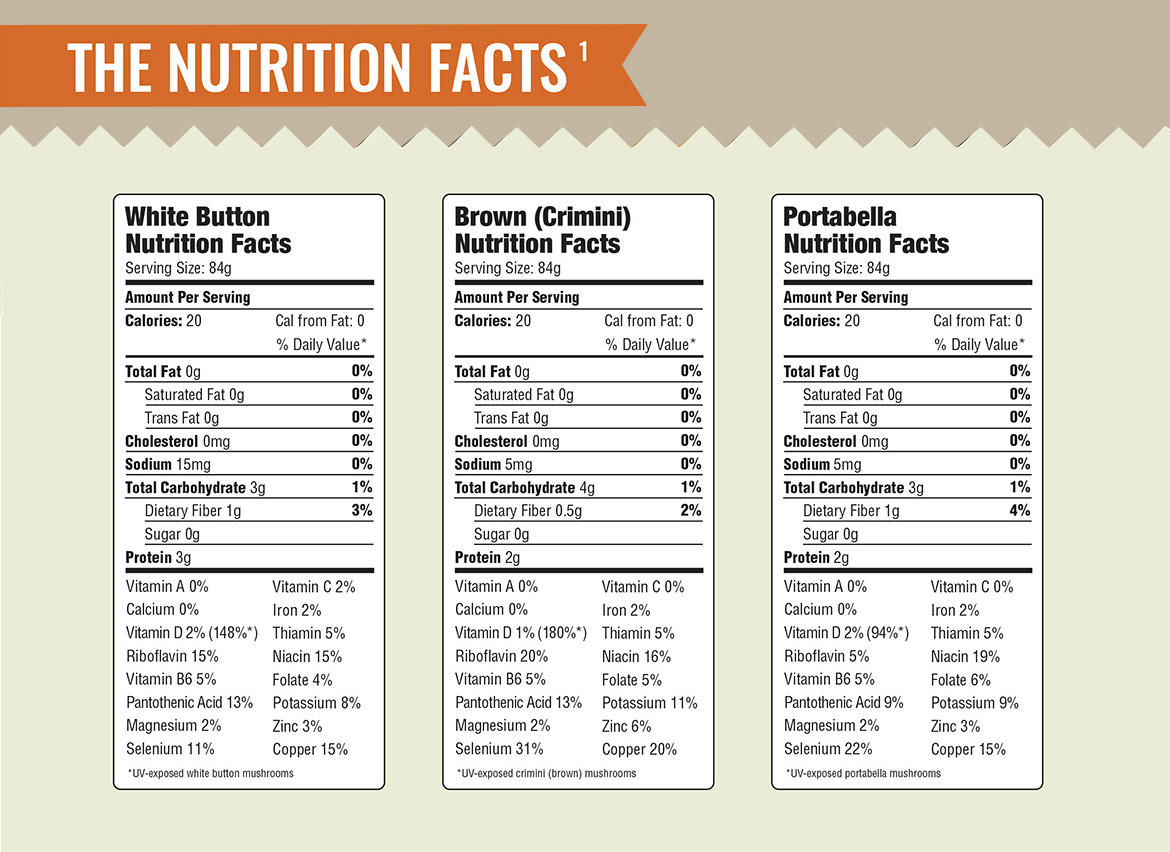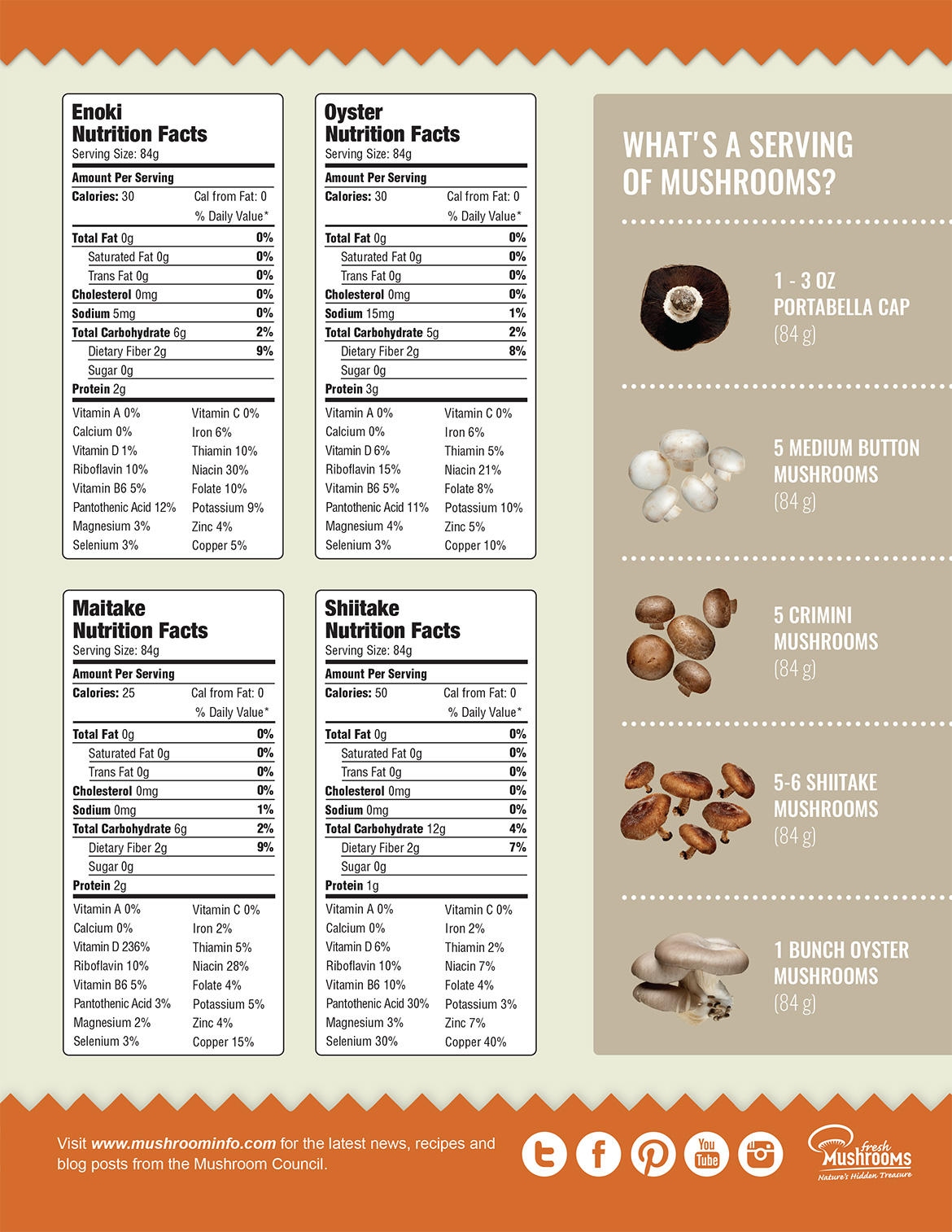

Nutritional Facts

Vitamin D in Mushrooms
Mushrooms are the only source of Vitamin D in the produce aisle and one of the few non-fortified food sources. Vitamin D helps build and maintain strong bones by helping the body absorb calcium.
All mushrooms contain some Vitamin D, but growers also have the ability to increase Vitamin D levels by exposing mushrooms to ultraviolet light. Similar to humans, mushrooms naturally produce Vitamin D following exposure to sunlight or a sunlamp.
Cancer
Scientists at City of Hope were some of the first to discover that mushrooms could suppress growth of breast cancer and prostate cancer cells in cell cultures and in animals. City of Hope researches have conducted a small clinical trial in patients with prostate cancer.
https://www.cityofhope.org/research/research-overview/superfoods-research/superfoods-mushrooms
Antioxidants and Immunity
Mushrooms are the leading source of the antioxidant nutrient selenium in the produce aisle. Antioxidants, like selenium, protect body cells from damage that might lead to chronic diseases and help to strengthen the immune system, as well. In addition, mushrooms provide ergothioneine, a naturally occurring antioxidant that may help protect the body’s cells.
https://www.mushroomcouncil.com/wp-content/uploads/2020/03/Mushroom-Immunity-Handout_final.pdf
Weight Management
Mushrooms are hearty and filling. Preliminary research suggests increasing intake of low-energy-dense foods (meaning few calories given the volume of food), specifically mushrooms, in place of high-energy-dense foods, like lean ground beef, can be helpful with weight management as they promote daily energy by limiting fat intake and leaving you full and satiated after a meal.
https://www.mushroomcouncil.com/wp-content/uploads/2017/12/Manage-Your-Weight.pdf
Sodium and Saturated Fat
The 2015-2020 Dietary Guidelines for Americans encourages healthy dietary patterns that are low in saturated fat and sodium. Mushrooms are fat-free and low in sodium. Mushrooms’ inherent umami counterbalances saltiness and allows for less salt to be used in recipes.
https://www.mushroomcouncil.com/wp-content/uploads/2017/12/Less-Salt-More-Flavor.pdf
Source: Mushroom Council (www.mushroomcouncil.com)
